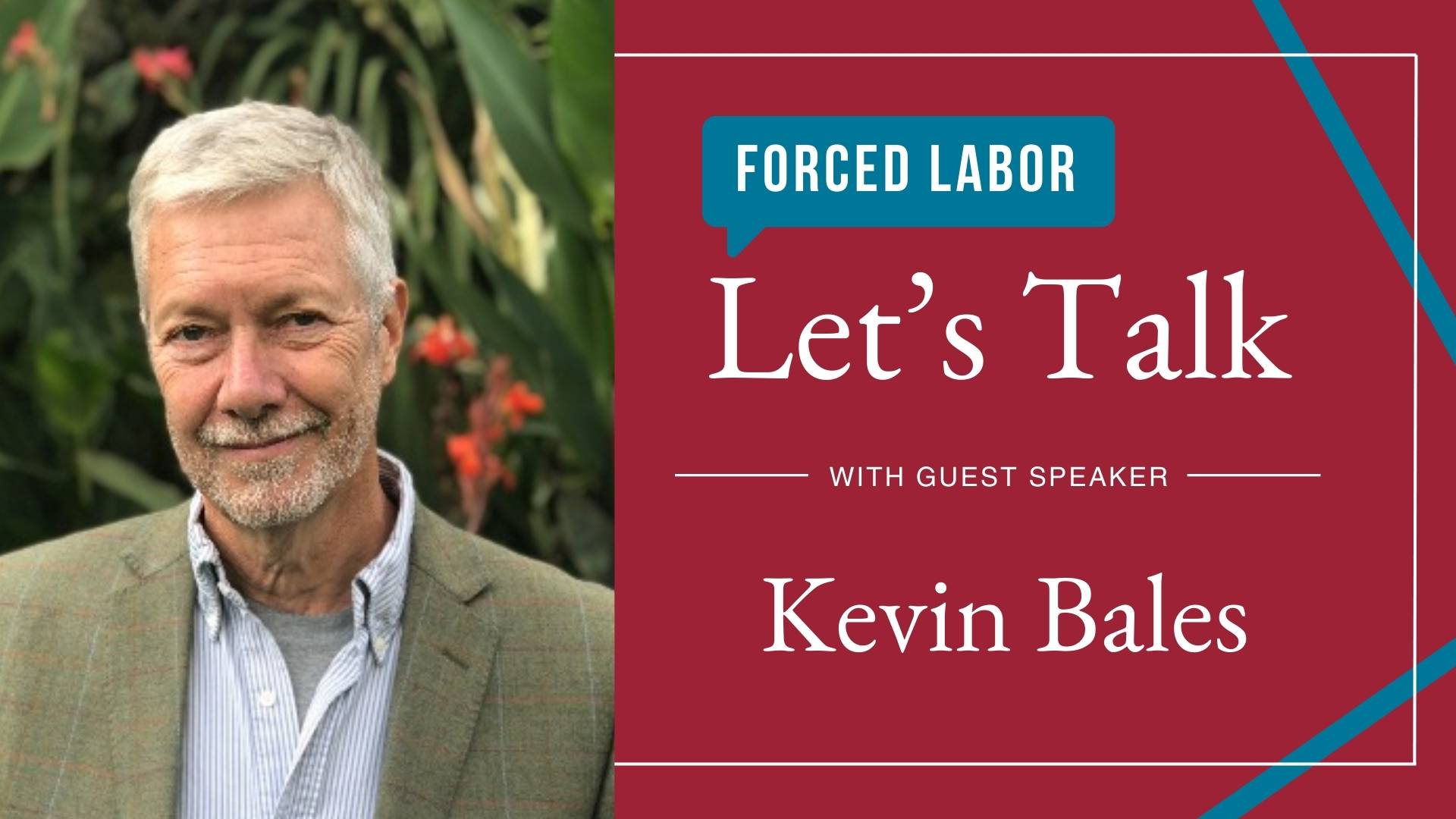

Kevin Bales was one of our guest speakers for Let's Talk about Forced Labor. Bales is the co-founder of Free the Slaves, a Pulitzer Prize nominee and accomplished author.
His discussion focused on numerous topics centered around modern slavery and how we are all connected to it through global supply chains. More than 40.3 million people across the world are enslaved in one form or another, and this number may be a conservative estimate. Some people are enslaved in the traditional understanding of the word, while others are through forms of exploitation. It is hard to create a safe supply chain, especially from the top. Bales said that the best way to change a supply chain is from the bottom-up.
Most times, we are not even aware of how close we are to enslaved people. It is not just through the products we receive, but through some services. The “Work in Oslo” Facebook page and other digital organizations like it are connected to numerous enslaved people. They lure people with the promise of ethical employment only to turn around and exploit their services.
Bales became aware of one example of this exploitation through his work in Brazil in the 1990s. He found that enslaved workers were burning charcoal to assist the steel industry in Brazil. He and others found links between slavery, murder and deforestation with parts of the Amazon that were never meant to be cut down being destroyed. Unfortunately, many victims of modern slavery are murdered in order to keep operations secret.
Bales said if slavery were a country or U.S. state, its population would match that of Algeria or a little more than California. Its GDP would match Bulgaria or Arkansas with a profit of $150 billion a year, and the carbon footprint of 2.54 billion tons of emissions would come in third in the world, trailing only China and the U.S. By tackling both slavery and climate change with the wealth of resources available, we could see huge progress in both areas.
However, people, businesses and governments all need to assist the fight. We are winning small fights, but need help to win the bigger ones. Careful government inspections can root out corruption in places like cotton factories or steel manufacturing plants. Businesses can look at their supply chains to see if they are ethically run. And people can spread the word and use apps such as Good For You to report unethical businesses and create more awareness.
Modern slavery is a multi-layered multi-billion dollar industry that harms human lives and our planet. It comes in any number of different forms, according to Bales. While it may seem impossible, we have the ability to destroy slavery around the world, and people are working daily to do so. With the assistance of governmental bodies and private and public businesses, destroying slavery will heal our societies and planet.






